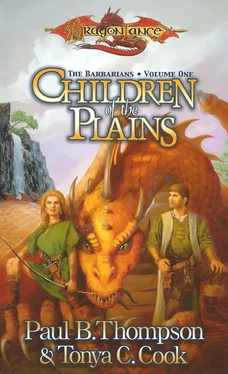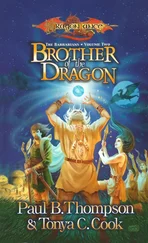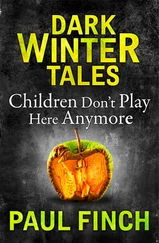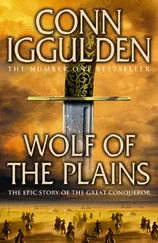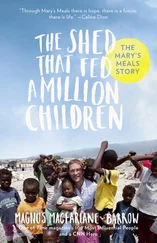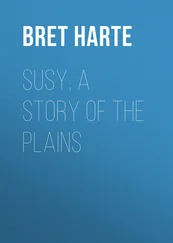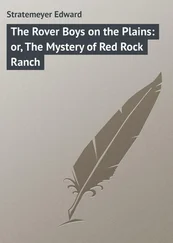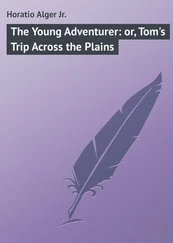Paul Cook - Children of the Plains
Здесь есть возможность читать онлайн «Paul Cook - Children of the Plains» весь текст электронной книги совершенно бесплатно (целиком полную версию без сокращений). В некоторых случаях можно слушать аудио, скачать через торрент в формате fb2 и присутствует краткое содержание. Жанр: Фэнтези, на английском языке. Описание произведения, (предисловие) а так же отзывы посетителей доступны на портале библиотеки ЛибКат.
- Название:Children of the Plains
- Автор:
- Жанр:
- Год:неизвестен
- ISBN:нет данных
- Рейтинг книги:5 / 5. Голосов: 1
-
Избранное:Добавить в избранное
- Отзывы:
-
Ваша оценка:
- 100
- 1
- 2
- 3
- 4
- 5
Children of the Plains: краткое содержание, описание и аннотация
Предлагаем к чтению аннотацию, описание, краткое содержание или предисловие (зависит от того, что написал сам автор книги «Children of the Plains»). Если вы не нашли необходимую информацию о книге — напишите в комментариях, мы постараемся отыскать её.
Children of the Plains — читать онлайн бесплатно полную книгу (весь текст) целиком
Ниже представлен текст книги, разбитый по страницам. Система сохранения места последней прочитанной страницы, позволяет с удобством читать онлайн бесплатно книгу «Children of the Plains», без необходимости каждый раз заново искать на чём Вы остановились. Поставьте закладку, и сможете в любой момент перейти на страницу, на которой закончили чтение.
Интервал:
Закладка:
“Now that’s… interesting,” was all the stranger said.
“What will you do with me, spirit-man?” he said weakly.
His rescuer seemed lost in thought, but finally said, “Duranix.”
“What?” asked Amero.
“My name is Duranix, and no, I won’t kill you. In fact, you may follow me.” It didn’t sound like a request. Duranix strode away, due east toward the distant mountains. A little stunned, Amero hobbled after him.
“Where are you going, Duranix?”
“Home.”
“What’s home?”
Duranix glanced back. “A place to live. Where one sleeps at night. Where is your home, Amero?”
“I have no home.” Amero swallowed a lump in his throat and looked down at his scraped, dirty feet. He would not cry. He was a man, and men did not cry. Oto never did. “We make a new camp every night. If you stay in one place too long, you go hungry. All the food gets eaten or runs away.”
“I see what you mean. I too travel a lot, but I always return to my home.”
In spite of his grief, Amero felt a stirring of curiosity. Lifting his tear-stained face, he said, “Where’s home?”
“Where the mountains meet the plain and a river breaks on a high cliff, that is home.”
“Oh, a waterfall. How large is it? What is it called?”
Duranix smiled. “Just ‘home.’ What would you call it, Amero?”
“I don’t know. I’d have to see it — but I could make up a name for it, if you want.”
“No doubt you would. Humans name things the way bees work a field of cornflowers. Here’s one, here’s another, here’s ten more.”
Heart singing with hope, Amero pushed himself to his feet. He took a step, then the sky seemed to spin around his head. The ground rushed up to meet him and he knew no more.
Duranix looked down at the unconscious boy for a moment, then effortlessly plucked him off the ground with one hand and tucked him under his arm.
“How can you understand the beasts?” Duranix said to the unconscious boy. “Why did I hear your thoughts of pain?” He answered himself. “Time will tell. Sleep now, boy. When you wake, we shall be home.”
Chapter 3
Nianki awoke in stifling darkness. Memory of the previous day’s terror returned. After slaying the last of the beasts stalking her, she’d crawled to the foot of the boulder and burrowed into the loose sand of the dry creek bed. Handful by handful she’d hollowed out a hiding place, and while the red moon still blazed like an ember in the sky, she crawled into her makeshift cave and slept like a dead person. The overhanging bulk of the boulder had warmed her during the night, but it must be daylight now — the sun-baked stone made the hole unbearable. Breaking through the thin wall of gravel and sand she’d erected to hide the opening, Nianki crawled into fresh air.
The gully was empty. The bodies of the beasts she’d slain were gone. Nianki tried to stand, but her wounds flamed with pain. Bracing herself against the boulder, she forced herself erect. This last movement drew her mouth open in a silent howl, but she did not allow herself to give voice to her torment. Even if the killer pack was no longer around, there were plenty of other scavengers who would find the injured Nianki a tasty morsel.
She found a length of dried vine to use as a crutch. It was as thick as her wrist and curled along its entire length, but it was stout. With its help she limped down the creek bed. A fallen tree blocked the way a few paces on. Nianki dragged herself over the obstruction and moved on, leaning heavily on her stick.
She knew her family was dead. If Oto were alive, he would have found her by now, and if he wasn’t, none of the others could be. Kinar, Amero, and Menni were not strong enough or swift enough to escape the deadly gray marauders.
So be it.
With each agonizing step, Nianki swore a private oath to Chisa, the great spirit of nature, that none of those creatures would be spared from her wrath — not male, female, or pup.
She would slay them all without mercy, until there were no more left to kill. It was an ugly, black vow, but it filled her with purpose and kept her moving forward.
Flies followed her, drawn by the smell of her wounds. Her tongue ached for water. The gully slanted down at a shallow angle, so she kept to the dry ravine in hopes of finding water.
Near midday the smell of water teased her nostrils. Nianki quickened her step, dragging her mangled leg through the loose gravel. Ahead, the gully was closed by a hedge of ferns and dense creeping vines. Now, she could hear the water as well. She tore through the greenery with stiff, bloody fingers and found a spring bubbling out of a split boulder. It collected in a moss-rimmed pool a hand’s reach below. Nianki wept at the sight of it.
She lowered herself on her belly beside the pool. Cupping her hands, she raised them brimming to her parched lips. Her first swallow tasted like blood, but she bolted it down nonetheless. Two more handfuls followed, the fourth she threw on her face. The clear pool grew murky. Exhausted, she let her face rest against the soft moss.
Kinar had tried to teach her which leaves and roots were soothing to wounds. Nianki had always been too impatient to heed her mother’s words. Only clumsy hunters allowed themselves to get wounded, she had thought. In fifteen years she’d suffered nothing worse than a few cuts and scratches. Now she worked her memory hard, trying to pry out the information Kinar had labored to impart.
Sumac soothes, larchit heals. The phrase surfaced in her fevered mind. Sumac was a woody shrub with pointed, shiny leaves, four leaves per stem. Larchit, also called soft-tongue, grew in dry places. Its leaves were like dark green, fleshy fingers. When cut, the leaves exuded a clear sap.
Nianki opened her eyes. Kinar’s words, Kinar’s voice, resounded in her head as clear as sunlight.
Silver algae from a fast-flowing stream is good for burns, she’d said. The meat of acorns, dried and ground to dust, will stop bleeding.
“Mother — ”
Be still, Nianki, and listen. This is slippery gum, and this is koti weed.
Nianki pushed herself up on her hands, half-expecting to see Kinar standing over her, but she was alone by the pool.
Gingerly, she peeled off her dirty, blood-soaked buckskins and slowly bathed her wounds. Those on her leg and neck were the most severe. She dipped a scrap of hide in the water and squeezed out the excess, using the soft nap of the buckskin to scrub away the dried blood and encrusted dirt. It was agonizing. Nianki banished the urge to weep by concentrating on her task.
She shivered. It was natural enough, sitting there half-naked, washing in cold spring water, but the strange heat in her face told her this was more than a normal chill. She’d seen bull elks survive a panther’s mauling, only to succumb a few days later to wound fever. Oto’s own father died after being gored by a wild pig, though his wounds had not seemed severe.
Nianki knew there were herbs for fever, but she found it increasingly hard to remember what they were. Sumac and larchit were fixed in her mind like trail signs. Lose them, and she would be lost indeed.
When her cuts and bites were clean, she dressed in her damp skins. Though it was another hot day, Nianki trembled as she threaded the lacing of her kilt and tunic. She put a smooth pebble from the pool in her mouth. Sucking on it would slake her thirst. Leaning heavily on her vine staff, she climbed out of the gully and surveyed her surroundings.
Their scattered, frantic flight from the pack had taken Nianki’s family far off their usual track. She could see the eastern mountains clearly enough, but the peaks presented an unfamiliar pattern. To the north and south lay trackless plain, as far as the eye could behold and well beyond. Back to the west lay several days’ worth of grassland, and after that, the great forest.
Читать дальшеИнтервал:
Закладка:
Похожие книги на «Children of the Plains»
Представляем Вашему вниманию похожие книги на «Children of the Plains» списком для выбора. Мы отобрали схожую по названию и смыслу литературу в надежде предоставить читателям больше вариантов отыскать новые, интересные, ещё непрочитанные произведения.
Обсуждение, отзывы о книге «Children of the Plains» и просто собственные мнения читателей. Оставьте ваши комментарии, напишите, что Вы думаете о произведении, его смысле или главных героях. Укажите что конкретно понравилось, а что нет, и почему Вы так считаете.
